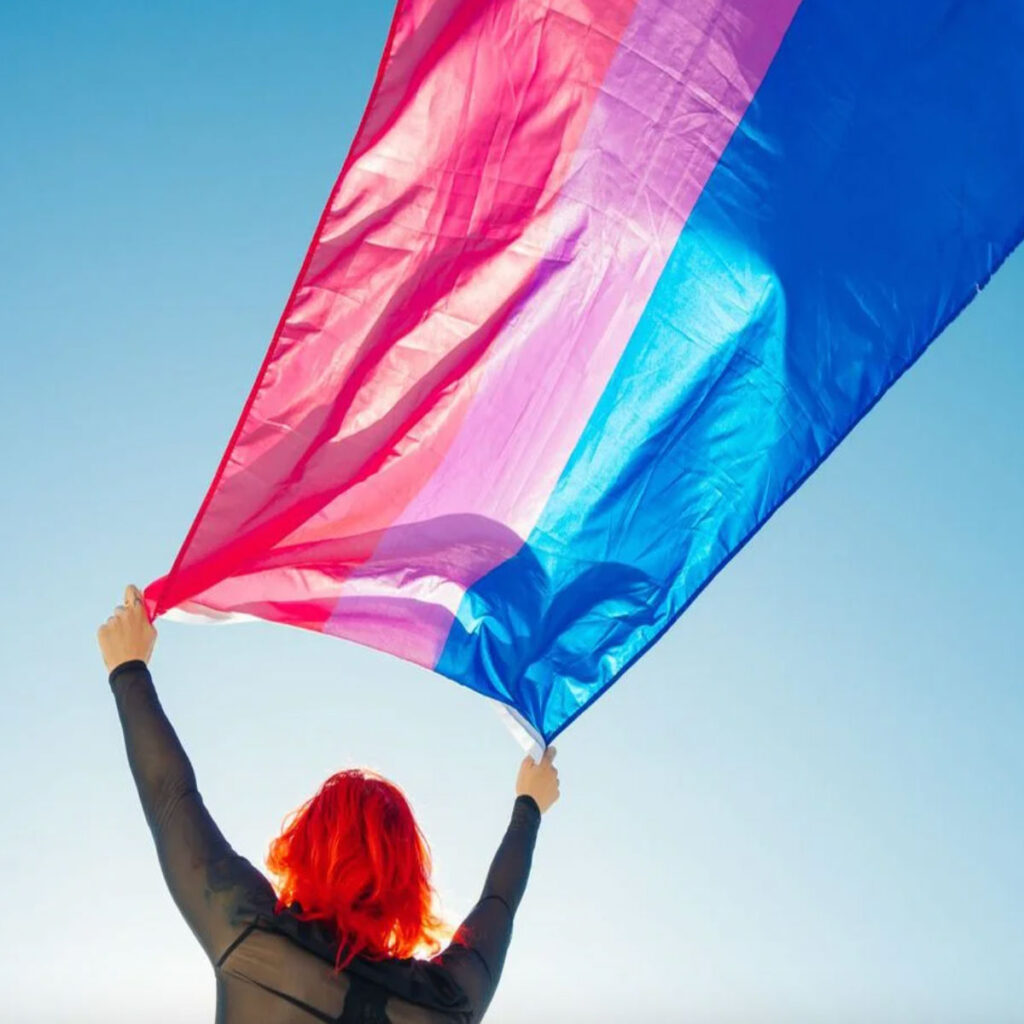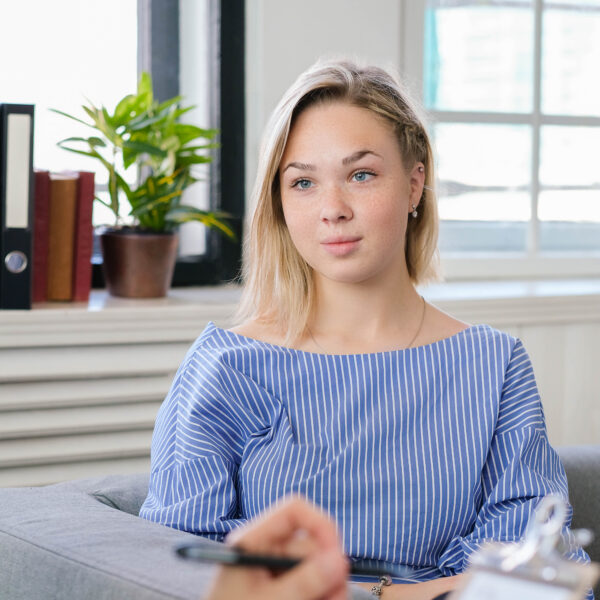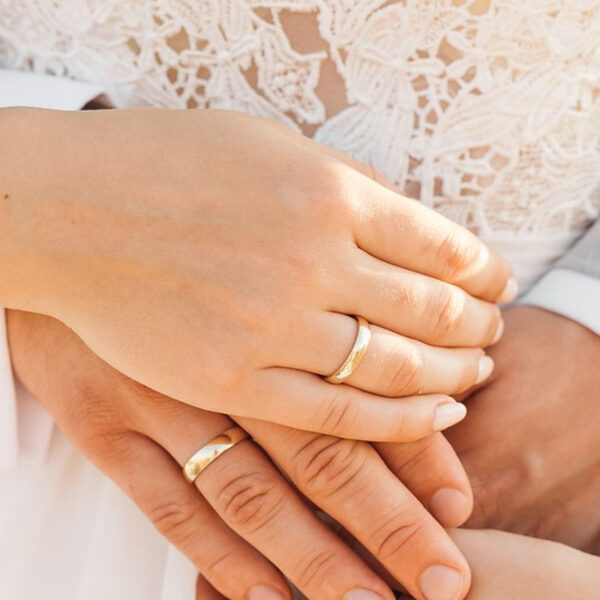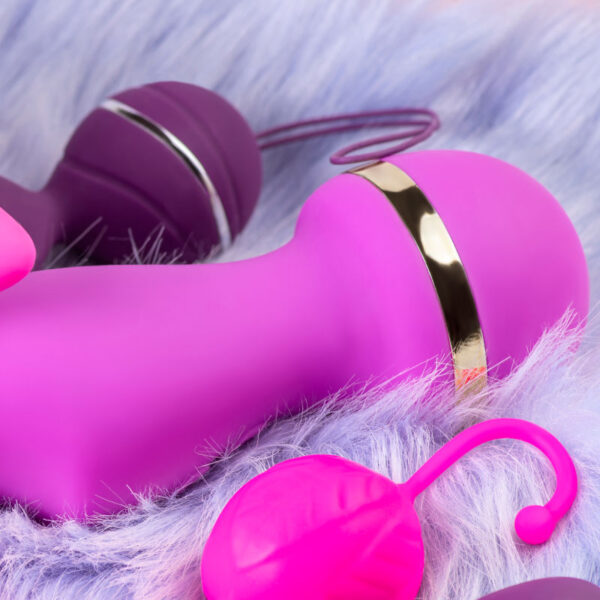
It’s been almost a year since I decided to get bangs. My esthetician told me I could rock a shag, a look I thought I couldn’t pull off because I wasn’t gay enough or cool enough. I’d be a poser. People would talk about me and say I look bad.
My whole life had been dictated by being liked, well-received, and good. I was a rule follower and highly motivated by accomplishment and praise. I wanted others to see and acknowledge me. But, I grew tired of being afraid of what people would say or think. So I got bangs. I also weighed myself for the last time, something I’d been doing obsessively for as long as I can remember.
Many things led to a deeper exploration and expression of my bisexual identity, but the bangs were important.
I’ve heard that your twenties are for making mistakes and learning, while your thirties are when you start to enjoy life. While my thirties have started tumultuously, given the pandemic, climate change, and the fact that I live in my childhood home with my parents and husband, it’s surprisingly been true.
Sexuality has always been something people identified with me- sometimes in a positive way, but the negatives stood out. When I entered grad school in a human sexuality program, I felt like an imposter. Yes, imposter syndrome is common amongst grad students, but it was more profound. I felt like I didn’t belong because I wasn’t smart enough. I suddenly felt like I knew nothing about the human sexual experience. And, I realized my mind wasn’t as open as I had always believed because I hadn’t asked enough questions or explored enough about myself.
Talking to people is such an essential piece of my life that I had to become a better communicator. To become a better communicator, I had to begin questioning myself. How do I show up in my relationships? How do I communicate my needs? I wanted to be able to help others learn to do these things as a therapist, but I also had to work really hard. It took cutting off a toxic relationship and leaving a toxic job to start showing up the way I wanted to in life.
So, I began conversations about what it means to be a human.
I realized how individualized the human experience is. Working at Trader Joe’s, I met many queer friends who validated my feelings around my identity and how I saw myself. But I still didn’t feel comfortable identifying as a queer person until after I became a therapist.
Bangs were a crucial moment in my life because it felt like I was finally stepping into myself, my style, my expression, and my sexuality. I stopped wearing as much makeup when I didn’t feel like it. I began to wear whatever I wanted, exploring a more masculine side of my personal style. And I started saying what was on my mind.
I began posting on social media again without fear.
After years of being shamed for oversharing, attention seeking, and being authentically myself, I began posting on social media again without fear. I love connecting with people. I love speaking out about being a highly sensitive person who cares a lot about a lot of stuff. I’m someone who has a story for any topic. Being a therapist, helping my clients question the systems, their relationships, and how they communicate their needs and desires has helped me do the same for myself. Finally, I’m surrounding myself with people who truly honor the same values and beliefs, question things, and show up as their authentic selves. That is how I can continue showing up and being the authentic version of Melanie I’ve always wanted to be.
Most importantly, I stopped apologizing for being myself. I started openly identifying as queer.
I’m lucky that I was raised to be accepting of others and grew up with an open mind regarding sexuality. I think that’s why it was so confusing for me to realize in my late twenties that I wasn’t straight or an ally–I was bisexual, and I always have been. Bi-erasure existed in my world in ways that I wasn’t even aware of. I thought it was 50/50, and I’d never dated anyone who wasn’t a man, so how could I ever take on this identity? Especially an identity often presented as being confused?
Accepting my queerness has allowed me to flourish in ways I never imagined. I hope to continue making this world more comfortable and safe for others to explore themselves. I see you and acknowledge you.
For more information about #BiWeek and other resources, check out the Bisexual Resource Center.
Looking for a therapist or unsure where to begin? Get started on our booking page.





Leave a Reply